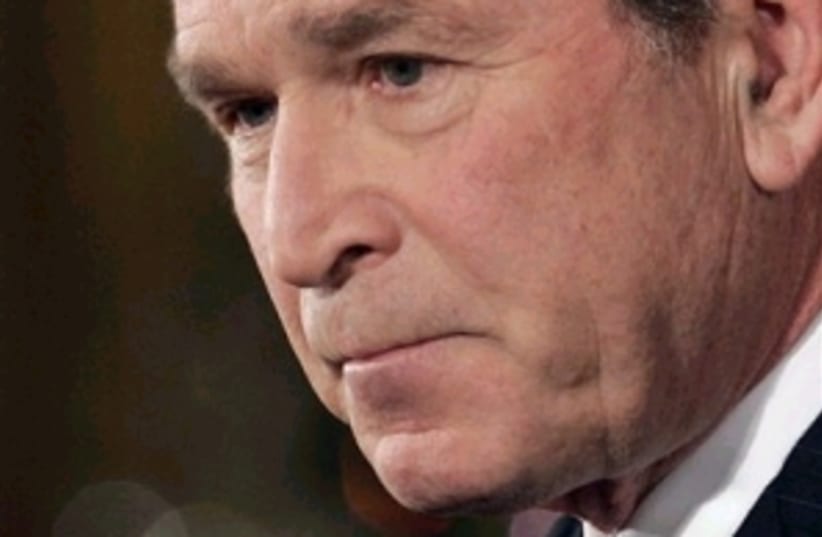Soon after Olmert took over for Prime Minister Ariel Sharon in January, there was talk that he would go to Washington, but that trip was postponed because of concern in both capitals that it would have been construed as American meddling in the election campaign.
In addition to speaking with Bush, Olmert also received congratulatory calls from German Chancellor Angela Merkel, Egyptian President Hosni Mubarak, British Prime Minister Tony Blair, the EU's Foreign Policy Chief Javier Solana and UN Secretary-General Kofi Annan.
Olmert thanked Mubarak for his support, and the two agreed to something that Sharon and Mubarak never pulled off - a bilateral meeting (Sharon only met with Mubarak while he was prime minister at larger summit gatherings).
Olmert, according to his office, told Bush that he hoped to form a broad coalition quickly, and wanted to continue Sharon's diplomatic policies.
Referring to disengagement, Bush said that Sharon had taken a "brave and major step," and that he admired Sharon for his "vision."
British Foreign Secretary Jack Straw issued a statement congratulating Olmert and saying that when both Israel and the Palestinians have governments in place, "I hope that both sides will do all they can to find a permanent solution to the conflict." French Foreign Minister Philippe Douste-Blazy said the election result was "good news for peace."
Officials in Olmert's office said he did not speak Wednesday with PA chairman Mahmoud Abbas or any other Palestinian officials.
Olmert, meanwhile, is scheduled to hold his first high-level diplomatic meeting since the elections Thursday afternoon with US deputy national security adviser Elliott Abrams and assistant secretary of state for Near Eastern Affairs David Welch, who arrived Wednesday evening. The envoys are not expected to discuss at this time Olmert's plans for further unilateral withdrawals from the West Bank.
Rather, the officials are expected to focus their talks, according to Israeli sources, on ways to assist the Palestinian Authority on the humanitarian level, even after the Hamas government is in place. The US wants humanitarian aid to continue flowing into the territories, but wants strict guidelines to ensure that US taxpayer dollars do not reach the hands of Hamas.
The Israeli sources stressed that Israel and the US are "on the same page" regarding humanitarian aid to the Palestinians, and that Israel was not interested in stopping this aid from reaching them.
The two envoys are scheduled to meet Foreign Minister Tzipi Livni, prime ministerial advisers Dov Weisglass and Shalom Turgeman, Defense Minister Shaul Mofaz and Chief of General Staff Lt.-Gen Dan Halutz on Thursday. In the evening, they are scheduled to meet former PA finance minister Salam Fayad.
On Friday, they will meet Shin Bet (Israel Security Agency) head Yuval Diskin and National Security Council head Giora Eiland.
They are also scheduled to meet PA negotiator Saeb Erekat, and are expected to meet Sunday with Abbas.
The talks with Abbas were expected to focus on the future of the Palestinian political system following the formation of the Hamas government. The US is interested in maintaining open communication channels with the Fatah leaders, even when they are not in power.

